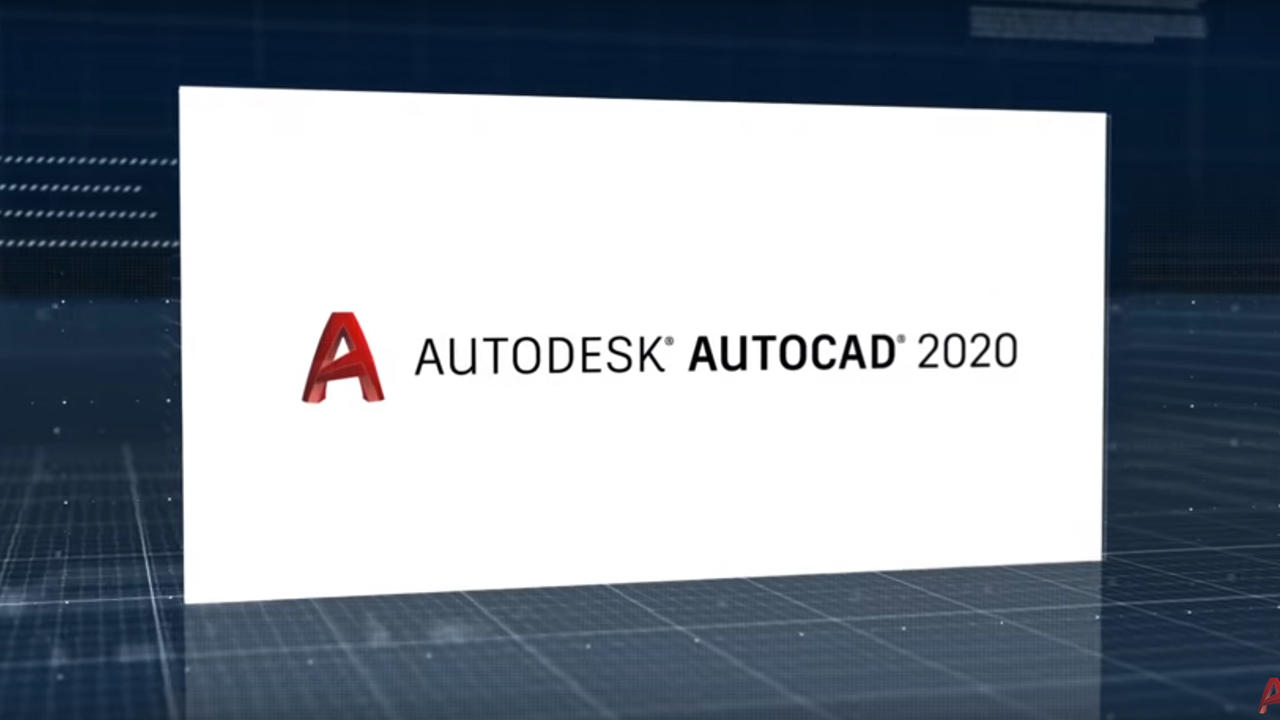Be curious about all fields; the future belongs to those who can connect creativity to technology.
~ Walter Isaacson ~
Trying to learn a new skill is often easier said than done, particularly when the concepts you are learning change and develop at an incredibly rapid pace — such as those in the information and communications technology (ICT) fields.
The Australian Digital Pulse report, put out each year by the Australian Computer Society (ACS), has been highlighting the Australian IT skills shortage since 2015 — with figures more than doubling between then and now.
It's not that the Australian population has a low level of computer literacy, although it could be better, but that the rapid move to cloud infrastructure, the continual changes to cyber security, and increased demand for advanced data analysis and artificial intelligence means that people are struggling to keep up with development.
Determining the most effective way to learn ICT basics and maintain an up-to-date level of experience can be difficult.
The options are endless — specialised computer courses, top-level university degrees and IT schools, online units of work — it's all there. It's just a matter of discovering which one meets your personal and career requirements.
Finding the best course or school to start studying computer science takes a little research.

Specialising in Information Technology
If you're into computers and love information technology, coding, programming and software, a career in IT may be what you need. If so, finding a top-quality degree or course is going to be essential.
In Australia, IT jobs account for over 10 per cent of those in highest demand so there are multiple opportunities for new graduates and people who are retraining in the digital technology fields. The most-needed jobs include systems management, development programming, software engineering, security and ICT project management.
However, before you rush off and enrol in the first computer science degree you find, it's important to identify your goals so you can target your learning around them.
Do you want a full degree? Are you after work-based training? Would you prefer targeted, skills-based evening classes?

Study ICT at a university or TAFE
If you've been through one of the Australian school systems, you may already have some basic IT experience or even a clear idea of the field you want to enter in the future.
A quick Google or internet search will bring up a list of ICT classes, university degrees and TAFE courses throughout Australia. Click on any of these and you'll be presented with a detailed list of specific units of study and courses from certificate level through to bachelor and postgraduate degree options.
For students who are still at school, talking to teachers or a careers advisor is a good first step. In addition, you should also look carefully at testimonials and, if possible, talk to current and past ICT students about their experience at the institutions you are interested in.
There may be an option to undertake work experience or an internship before enrolling. This will help you get a feel for the study program and the teaching style before you submit your enrolment application.
Remember to look carefully at the units of study in the course you're interested in. Just because a course at one university or TAFE has the same title as another university, this does not mean they will have an identical, or even similar, curriculum.
Depending on the university or TAFE, some degree options will veer more towards the artistic and creative (graphic design, web development etc.), while others may focus more on teaching, engineering or business management.
Naturally, if students have a clear idea of their career path, this will narrow down their options. Alternatively, if students are still not sure about the area in which they want to specialise, a more general computer science degree or ICT program is a good choice.
A good idea, if you are undecided about your career path, is to look for a course where the first year of study is based around a general framework, with specialisation options offered in the second and subsequent years.
Also remember that there are numerous short, online course options you can take through a university or TAFE, in areas like coding, web development and design and cyber security. Doing these can be useful to help you work out your area of interest. They may also ensure you fulfil specific course requirements and prerequisites.
Career opportunities in ICT
Once you have the knowledge, there are numerous IT professions you can enter.
- Web design
- Graphic design
- Systems integration
- Database design
- Database management
- Network engineering
- Software engineering
- Development
- Programming/computer science
- Systems security
- Cyber security
- Support technician
- Cloud engineering
- Project management
- Security governance, risk and compliance specialist
- End-user support (for business and individuals)
A computing degree develops key skills that are applicable across a wide range of careers, not just those in the information technology sphere.
Expertise in problem-solving, visualisation, analytics, management and design are relevant across the board, so if you've completed a university or other higher education degree (certificate, bachelor, honours, masters etc.) but don't want to specifically work in the tech industry, there are many other options, including:
- business management
- information security
- forensic science
- information science
- mathematics
- teaching and online education
- finance
- psychology (or other fields of humanities).
Building Computer Literacy Through Association Training Courses
Not every potential student wants, or needs, to undertake a full university degree or TAFE certificate course. If this is you, there are many other options to learn computing, gain new skills or upgrade your current knowledge.
You may be interested in a short course option that targets specific concepts, such as web development, or starts with the fundamental computer and IT skills. There are numerous associations and tech societies to explore, as well as evening courses and workplace training.
Whatever you decide, it's important you are aware of your goals and how your course will meet these.
What to expect from your computer course
Who is the training course's target audience?
Association and society courses tend to focus on providing students with a general knowledge of computing, basic computer literacy and an overview of different IT fields. Many of these computer courses are for beginners.
This focus on basic computer literacy often means that teachers are not necessarily IT professionals with expertise or experience in the field of digital technology. While their knowledge may be good, it may also be limited.

Courses for beginners — computer literacy and beyond
Everything we do in today's world involves interaction with computers and other digital technologies. For this reason, possession of fundamental computer knowledge is a bare minimum for day-to-day life, at every age.
Many people, from the elderly who may need the basics through to professionals whose job requirements necessitate upskilling specific digital skills (such as video or photo editing, software use, programming etc.), opt for classes through an IT society or community group, or even a self-paced online course.
Such courses are not undertaken for grades or the attainment of a qualification certificate but are all about upskilling and gaining more experience in a target area — therefore, the pressure is reduced and the motivation to learn is increased.
Many classes are for beginners, however, with sufficient demand, classes are often offered for intermediate or advanced students as well. For the latter, there are, of course, certain requirements pertaining to digital skill level and background knowledge or experience of particular systems.
Students at the beginners level can expect to learn how to use a computer independently. Courses are likely to cover practical elements and the use of basic software including Word, Excel, Publisher or Adobe or systems such as Google apps.
Often, with informal associations or society classes, students have flexibility in terms of the mode of delivery and the frequency. Some students may prefer face-to-face learning, while others want to study at home with an online computing course. You may also have the option of fortnightly classes, or weekly sessions, as well as internships.
Your local library or community centre is a great place to look for local associations offering computing skills courses. Alternatively, you may want to investigate training offered by Max Solutions, the Australian Computer Society or the Australian Institute of ICT, among others.
Can Computer Courses be Done Online?
These days, there is nothing you can't find on the internet. Just about everything can be learned remotely — maths, science, literacy, painting, yoga and, yes, computing.
If you're an absolute beginner, you might be a bit apprehensive about taking a computing course online but, believe it or not, it is possible and the great advantage is that you will be learning by doing!
For a student with a little background knowledge and experience, everything needed can be found on the internet — web development and design, tech management, coding languages, software design and development — and, as with the beginner classes, all of these are perfect because you are applying what you learn immediately, on your computer.

You could even make a career out of the skills you learn remotely.
Coders, designers, technicians, engineers, developers — they all had to start somewhere. There's no reason why you can't, too.
Even if you don't want to go into the tech industry full time, learning the basics will enhance your digital technology capability and increase your employability in the field of your choice.
Unsurprisingly, given advances in technology, you can even experiment and teach yourself new skills. Many people do this, whether through free online courses, YouTube videos, support groups and networks or specialist sites — if you're motivated and disciplined enough, you can achieve anything.
Alternatively, if you need someone else to guide you and help keep you motivated, a tutor who delivers lessons via webcam is an excellent option.
Options are guided by your goals
With so many options out there, from university (and international) bachelor degree programs through to a free YouTube series and everything in between, it can be overwhelming to make a decision. However, if you first consider your ultimate goals and then move on from there, it becomes a lot easier.
- Make computing a profession
If this is your goal, obtaining a certificate, diploma or even a computing degree is going to be worth it. With the right qualifications, it is easier to find a job in the industry you want. Later, it will also give you bargaining power when it comes to negotiating a salary.
A formal university qualification also opens up networking opportunities, which means building connections to other industry professionals. These introductions can be essential when it comes to making your way in your chosen career.
- Add to your CV
Perhaps your goal is just to increase your chances of promotion or change careers in a sideways move to something more rewarding. Having a few extra IT skills up your sleeve will certainly not go astray.
Whether you need to brush up on the fundamentals (like PowerPoint, Excel or Office), more advanced applications (like InDesign and Adobe) or something more specialised (like website creation), a short course or targeted program of study is going to be ideal.
- Learn a new skill for you
It may be that you are retired or have never had the opportunity or need to learn certain computing or tech concepts. There's no time like the present. Maybe you want to learn how to code, how to conduct research for your family history or how to build a website from scratch? Free classes, a private tutor or a community interest group may be just what you need.
Your background knowledge and skill level, along with your learning intentions, are going to determine the path you take. Try making a list of things you want to learn and why so you can narrow down your options and find the right tech education resources for you.
From Basic ICT Skills to Coding and Programming — A Tutor Can Help
Private Tuition
Some subjects are best learned in a one-on-one situation with a qualified and knowledgeable teacher; computing is one of these subjects. You might be after a basic IT course, coding instruction or help to write a computer program — we guarantee there is a tutor out there who can help you with this.
Education of this kind, with a private tutor, is not limited to academic subjects that are going to take years and years to complete. Nor does it mean you'll be hit with expensive fees.
In fact, tutors provide private classes in a whole range of subjects and skills, from the highly academic through to completely hands-on and recreational. In addition, a series of lessons with a private tutor is unlikely to be as expensive as you may expect. In fact, a tutor's fees are particularly good value for money when you consider you are getting their attention one hundred per cent of the time and your education is all about you!
Tutors with Superprof offer a whole range of private lessons in the IT field, including programming lessons and tailored lessons designed solely to meet your goals.

Course content to meet student needs
If you already have a good working knowledge of the fundamentals, you may choose to continue your computing education with specialised subjects such as software analysis, new and developing technologies or advanced formatting and design.
However, it is important to know that part of a private tutor's job is to personalise their student's learning. The trick is to choose the tutor who is the best match for you.
Often, the first time you meet with your tutor, it will be for a trial lesson (and, as such, there are no fees applied). This allows both student and tutor to ascertain if they are going to be a good match, and for both to outline their expectations. In the case of the student, this will mean sharing their aspirations with the tutor. The tutor, conversely, should use this time to explain what they expect in terms of preparation, homework and feedback.
A few final things to think about before starting your computer course
Location, or even course type, do not matter as much as whether or not you benefit from working with your tutor.
Many of these outcomes lie in the relationship you have with your tutor and whether or not their tutoring style matches your learning one.
The other thing that is important is that, particularly if the tutor is coming to you, or you're on webcam together, is that you have the right equipment. For example, there's no point paying the fees to learn how to edit a video if you only have a basic, old-school computer.
You should also think about the pace of your classes. This depends on your time availability and your commitment to studying. It may be that you can only commit to one subject in one lesson a week. That's fine. Whatever you choose, make sure you leave yourself time to review lessons and complete any preparation or homework assigned by the tutor.
It may be that your budget and personal schedule determine your overall timetable.
Finally, make sure your chosen tutor is fully qualified and experienced in the particular field you've chosen. If your tutor is unable to explain a coding concept or programming problem in a way you understand, it may be that they are not the right tutor for you (although they may be for someone else). Ensure you are happy with your tutor's teaching style.
Not all IT lessons are the same. Take your time, do your research, find the course that suits you best.
Summarise with AI:
























